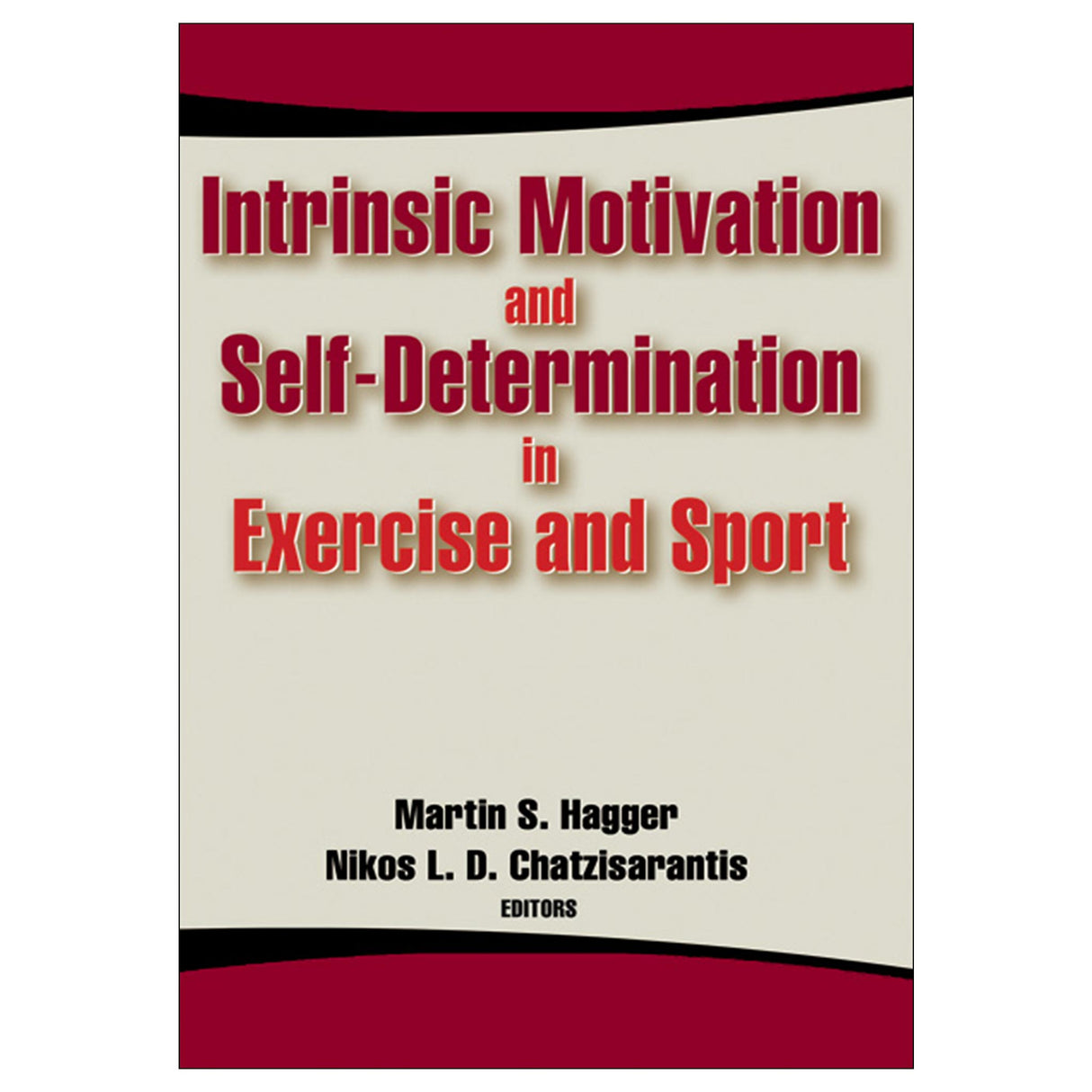Intrinsic Motivation and Self-Determination in Exercise and Sport PDF
$94.95 CAD
Access Duration: 10 Years
The world of exercise and sport is fascinated by motivation and the factors that drive it. It’s no wonder researchers—both in and out of the sport domain—will enthusiastically welcome Intrinsic Motivation and Self-Determination in Exercise and Sport.
Motivation is central to many social psychological theories that aim to explain behavior, including self-determination theory, one of the most influential theories of human motivation developed in the last three decades. Intrinsic Motivation and Self-Determination in Exercise and Sport examines the contribution of this theory to the understanding of motivation and behavior in the domains of exercise and sport. This is the first book to synthesize key research of self-determination theory as it relates to sport and exercise into one convenient volume. Written by a broad range of leading researchers, this reference will be a trend setter in the understanding of internal motivation and how to maximize performance and adherence. Furthermore, this volume will fill in research gaps, improve existing research, and set new directions for research in this vibrant area.
Self-determination theory is based on the premise that individuals pursue self-determined goals to satisfy their basic psychological needs to independently solve problems, interact socially, and master tasks. The book begins with an introductory chapter in which the founding fathers of self-determination theory, Edward L. Deci and Richard Ryan, provide an overview of the theory and its constituent subtheories and chart its history with respect to exercise and sport, highlighting classic studies and seminal works along the way. This introduction masterfully provides sufficient theoretical grounding and serves as an excellent prologue to subsequent chapters.
The remainder of the book is organized in two parts that cover research in the domains of exercise and sport. Part I examines the contribution of self-determination theory to the explanation of participation in and adherence to health-related exercise, and it examines the motivational experiences and contingencies that bring about exercise behavior and health-related outcomes. The recommendation sections that follow each chapter provide specialists interested in promoting exercise—including personal trainers, clinicians, health psychologists, and physical educators—with key strategies to motivate people to regularly participate in exercise for health.
Part II discusses the role that self-determination theory plays in explaining motivational processes involved in competitive sport contexts and summarizes the state of the literature concerning self-determination theory in diverse areas of sport, including athletes’ motivation and sport performance, goal content and orientations, dropout, psychological well-being, and coaching behaviors. The recommendations outlined at the close of each chapter provide coaches, sport psychologists, sport promoters and managers, and physical educators with realistic, practical solutions to maximize sport performance, persistence in training, and, above all, enjoyment and well-being among athletes.
Intrinsic Motivation and Self-Determination in Exercise and Sport also integrates self-determination theory concepts with other theoretical frameworks to highlight the versatility of the theory and encourage future research. Each chapter in the text closes with clearly explained, in-depth suggestions for future research and for transferring findings into practice.
Whether you’re a researcher in sport and exercise or in any other area where performance and adherence issues are key, Intrinsic Motivation and Self-Determination in Exercise and Sport will leave you inspired by the editors’ and contributors’ research and philosophy, brought together here to advance the knowledge of motivation in exercise and sport.
Part I. Intrinsic Motivation and Self-Determination in Exercise
Chapter 1. Exercise Participation Motives: A Self-Determination Theory Perspective
David Markland, PhD; and David K. Ingledew, PhD
Chapter 2. Perceived Autonomy Support and Psychological Need Satisfaction
Jemma K. Edmunds, PhD; Nikos Ntoumanis, PhD; and Joan L. Duda, PhD
Chapter 3. The Trans-Contextual Model of Motivation
Martin S. Hagger, PhD; and Nikos L.D. Chatzisarantis, PhD
Chapter 4. Self-Determination and Motivation in Physical Education
Martyn Standage, PhD; Fiona Gillison, MSc; and Darren C. Treasure, PhD
Chapter 5. Self-Determination Theory and Motivational Interviewing in Exercise
David Markland, PhD; and Maarten Vansteenkiste, PhD
Chapter 6. Self-Determination Theory, Exercise, and Well-Being
Philip M. Wilson, PhD; and Wendy M. Rodgers, PhD
Chapter 7. The Flow State and Physical Activity Behavior Change as Motivational Outcomes: A Self-Determination Theory Perspective
Michelle Fortier, PhD; and John Kowal, PhD
Chapter 8. Perceived Feedback and Motivation in Physical Education and Physical Activity
Vello Hein, PhD; and Andre Koka, PhD
Part II. Intrinsic Motivation and Self-Determination in Sport
Chapter 9. Measurement Issues in Self-Determination Theory and Sport
Luc G. Pelletier, PhD; and Philippe Sarrazin, PhD
Chapter 10. Motivation in Elite-Level Sport: A Self-Determination Perspective
Darren C. Treasure, PhD; Pierre-Nicolas Lemyre, PhD; Kendy K. Kuczka, PhD; and Martyn Standage, PhD
Chapter 11. Intrinsic Versus Extrinsic Goal Promotion in Exercise and Sport: Understanding the Differential Impacts on Performance and Persistence
Maarten Vansteenkiste, PhD; Bart Soenens, MSc; and Willy Lens, PhD
Chapter 12. Competence Motivation in Sport and Exercise: The Hierarchical Model of Achievement Motivation and Self-Determination Theory
David E. Conroy, PhD; Andrew J. Elliot, PhD; and J. Douglas Coatsworth, PhD
Chapter 13. Understanding Young People’s Motivation Toward Exercise: An Integration of Sport Ability Beliefs, Achievement Goal Theory, and Self-Determination Theory
Chee Keng John Wang, PhD; and Stuart J.H. Biddle, PhD
Chapter 14. Coaching Effectiveness: Exploring the Relationship Between Coaching Behavior and Self-Determined Motivation
Anthony J. Amorose, PhD
Chapter 15. A Self-Determination Theory Approach to Dropout in Athletes
Philippe G. Sarrazin, PhD; Julie C.S. Boiché, PhD; and Luc G. Pelletier, PhD
Chapter 16. Self-Determination Theory and Well-Being in Athletes: It’s the Situation That Counts
Marylène Gagné, PhD; and Céline Blanchard, PhD
Chapter 17. A Hierarchical Model of Intrinsic and Extrinsic Motivation for Sport and Physical Activity
Robert J. Vallerand, PhD
Conclusion. Intrinsic Motivation and Self-Determination in Exercise and Sport: Reflecting on the Past and Sketching the Future
Nikos L.D. Chatzisarantis, PhD; and Martin S. Hagger, PhD
“This book covers all one would need to know about the topic of intrinsic motivation, including a beautiful schematic representation of self-determination theory illustrating the components that underlie the theory.”
-The Sport Psychologist, March 2008





